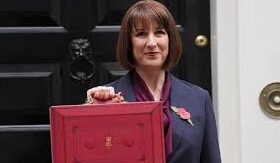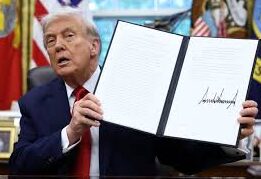The UK Treasury is reportedly planning a bold move to tax landlords’ rental income in the upcoming autumn budget, aiming to generate around £2 billion in revenue as part of efforts to close a looming public finance gap of £40 billion.
Currently, rental income is exempt from National Insurance contributions a tax usually charged on wages at about 8%. Officials are now considering extending National Insurance to cover rental earnings, marking a significant shift in property taxation. Labour insiders have described rental income as a “significant potential source” of extra funds, seeing landlords’ earnings as largely “unearned” revenue that could help ease the government’s money crunch.
This comes amid mounting political attention on property income. Earlier this month, analysis revealed that several senior ministers, including Chancellor Rachel Reeves, earn rental income themselves. In total, one in eight MPs declared rental income last year, highlighting how common landlord roles are among politicians across parties.
However, experts warn this move could have unintended consequences. Tom Bill, head of UK residential research at Knight Frank, points out that taxing landlords could squeeze the already fragile rental market. “While targeting landlords may not cost the government many votes, the true losers risk being tenants,” he said. “Tougher taxes might force landlords to sell or push rents up as costs are passed on, reducing the supply of affordable rentals.”
The property website Zoopla also warned that talk of new property taxes might slow down an already cautious housing market. The uncertainty could lead buyers to hold off, especially for homes under £500,000, cooling demand further.
This potential tax is just one part of a wider package of property-related measures Chancellor Reeves is exploring. Officials have been examining reforms that could replace stamp duty on homes over £500,000 with a new national property tax. They are also looking into whether a local property tax could eventually replace council tax to stabilize local government finances.
Further proposals reportedly under review include scrapping the capital gains tax exemption on primary homes valued over £1.5 million to boost government income.
When asked about the speculation, Education Minister Stephen Morgan declined to comment on specifics but emphasized that the upcoming budget would reflect “Labour values” focused on economic growth and support for working people. “Tax policies are for the chancellor to announce,” Morgan said, urging patience until the budget’s official release.
A Treasury spokesperson did not directly address the landlord tax rumors but stressed their commitment to strengthening public finances through economic growth and reforms such as planning changes expected to boost the economy by £6.8 billion and reduce borrowing by £3.4 billion. They reiterated a promise to keep taxes low for working people, noting that last year’s budget protected income tax and National Insurance rates.
As the autumn budget approaches, landlords and tenants alike will be watching closely to see if these tax plans come to life and what it could mean for the future of the UK’s property market.






